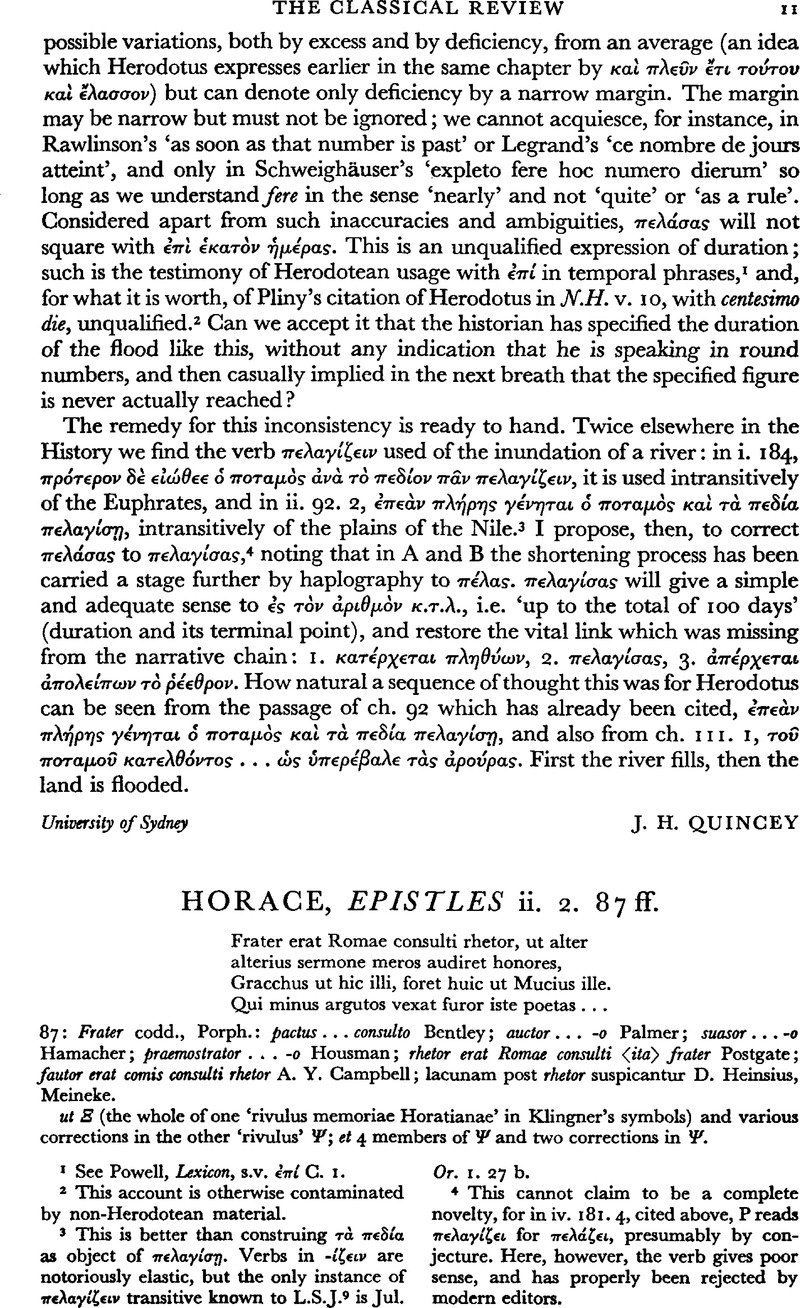No CrossRef data available.
Article contents
Horace, Epistles ii. 2. 87 ff
Published online by Cambridge University Press: 27 February 2009
Abstract

- Type
- Review Article
- Information
- Copyright
- Copyright © The Classical Association 1965
References
page 11 note 1 See Powell, Lexicon, s.v. ἐπί C. 1.
page 11 note 2 This account is otherwise contaminated by non-Herodotean material.
page 11 note 3 This is better than construing τὰ πεδία as object of πελαγίση. Verbs in -ίξειν are notoriously elastic, but the only instance of πελαγίξειν transitive known to L.S.J.9 is Jul. Or. 1. 27 b.
page 11 note 4 This cannot claim to be a complete novelty, for in iv. 181. 4, cited above, P reads πελαγῷξει for πελάξει, presumably by conas jecture. Here, however, the verb gives poor sense, and has properly been rejected by modern editors.
page 12 note 1 Housman, followed by Campbell, (C.Q. xxxix [1945], 116 f.)Google Scholar, took exception to, and emended away, the Romae as well. Campbell objects (p. 117) that Horace never uses the locative Romae ‘except to express contrast with other places … otherwise, like “in town” to a Londoner, it goes without saying’. Precisely. After complaining in 65 f. of the noise and bustle that made life in Rome impossible he had developed from 77 f. the theme ‘scriptorum chorus omnis amat nemus et fugit urbem’. The αἶνος introduces the new but allied point that good poetry cannot be written in the atmosphere of insincerity and mutual flattery prevailing in Rome.


